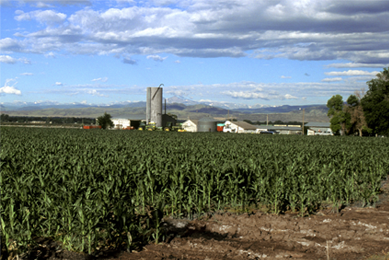Why it's important
Plant disease outbreaks are a major threat to food security.2 With the global population estimated to reach 10 billion by 2050, an increase in food production in addition to a reduction in food loss due to plant disease is needed to support the growing population.3 Rapid, accurate diagnostics tools for identifying new and reemerging diseases, detecting natural or unintentional pathogen introductions, and preventing the spread of disease during trade are essential for effective disease management.4 At the same time, validating such diagnostic assays is vital to secure their accuracy, dependability, and usefulness in practical scenarios.4
What’s the solution?
Plant pathogen standards function as benchmark strains for comparing and standardizing experimental research or diagnostic assays. Access to type cultures and reference standards that represent different strains, pathovars, and genotypes are important for inclusivity and exclusivity testing. Creating these standards and offering consistent sources of authenticated materials with published assay data are vital for validating assays, thereby ensuring quality control and diagnostic precision.
How we can help
Developing plant pathogen standards involves a comprehensive process that includes isolation, characterization, authentication, quality control, long-term preservation, and distribution.1 ATCC recognizes the importance of plant pathogen standards and continues to expand its collection in this area. Our portfolio contains more than 1,400 species of fungal and oomycete plant pathogens encompassing 340 genera, 255 bacterial species or pathovars from 36 genera, and 445 plant viruses, many of which are reference strains that can be use as plant pathogen standards. Our portfolio includes major pathogens of corn, soybeans, wheat, cotton, grapes, almonds, potatoes, strawberries, rice, apples, pistachios, sorghum, oranges, tomatoes, sugar beets, blueberries, and APHIS-regulated invasive species, and we are actively working on acquiring and authenticating additional microbial plant pathogens to meet the needs of the scientific community.
In addition to providing a variety of authenticated plant pathogens, we are further characterizing these strains by providing in-depth whole-genome sequencing data. Our reference-quality genomes can be obtained from the ATCC® Genome Portal. We also provide the opportunity for researchers to send us a genome sequencing request to have specific organisms from the ATCC biorepository be sequenced and published to the ATCC® Genome Portal. We are also continually looking for new plant pathogens to add to our collection to make available to the scientific community.
Did you know?
ATCC offers a variety of authenticated bacteria and fungi with potential biocontrol applications against weeds, nematodes, microbial pathogens, and arthropods.
Meet the author
Shahin Ali, PhD
Senior Scientist, Collections, ATCC
Dr. Ali is a Senior Scientist at ATCC with over 13 years of experience in the field of fungal biology and plant-pathogen interactions. Before joining ATCC, Dr. Ali worked for the USDA-ARS at Beltsville Agricultural Research Center, Maryland. He obtained his PhD from University College Dublin, Ireland.
Check out our featured resources

Plant Disease Research
Plants are vital for life on Earth. Yet, they are continually put at risk by the introduction and spread of pests and pathogens. Partner with ATCC to discover how we can protect these valuable resources together.
More
Agricultural Research
Early detection of plant and animal diseases is vital for preventing the loss of agricultural resources and minimizing the economic impact. Discover why authenticated materials are essential for developing accurate assays.
More
Plant Viruses
Plant viruses have the potential to wipe out crops, disrupt the food supply chain, and cost the agriculture industry millions of dollars. To support research in this area, ATCC offers a wide variety of plant viruses, antisera, and clones.
MoreReferences
- Harmon CL, et al. Standards of Diagnostic Validation: Recommendations for Reference Collections. PhytoFrontier 3:43-50, 2023.
- Ristaino JB, et al. The Persistent Threat of Emerging Plant Disease Pandemics to Food Security. Proc Natl Acad Sci U S A 118(23): e2022239118, 2021.
- Food and Agriculture Organization of the United Nations, The State of Food and Agriculture 2019: Moving Forward on Food Loss and Waste Reduction (Food and Agricultural Organization, Rome, Italy, 2019).
- Cardwell K, et al. Principles of Diagnostic Assay Validation for Plant Pathogens: A Basic Review of Concepts. Plant Health Progress 19:272–278, 2018.